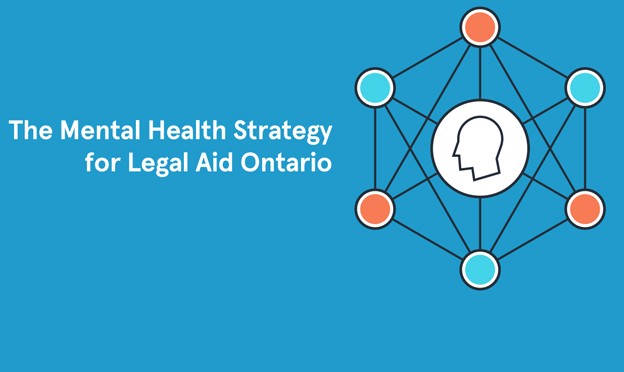Legal Aid Ontario (LAO) released its Mental Health Strategy today, outlining new programs and services to better help clients with mental health or addiction issues.
“The launch of this strategy is an important step,” says John McCamus, LAO’s chair. “One in three of LAO’s clients experience mental health or addiction issues. Furthermore, people with mental health issues are disproportionately criminalized, incarcerated, impoverished and under-housed – all of which raise important advocacy issues that fall within LAO’s mandate.”
“Thanks to the efforts of Legal Aid Ontario, more Ontarians who suffer from mental illness will now have a voice in our legal system,” says Madeleine Meilleur, Attorney General of Ontario. “I applaud Legal Aid Ontario for their leadership in launching their Mental Health Strategy and for continuing to provide services to our most vulnerable communities.”
A plan for change
In The Mental Health Strategy for Legal Aid Ontario, LAO lays out its plans for mental health rights and advocacy within Ontario’s legal system.
Over the course of 2016, LAO will introduce new services and programs across the province for mental health clients. These include:
- having legal services available in places where mental health clients can more easily access them—places like drop-in centres, psychiatric facilities, or out-patient services
- working with the Mental Health Commission of Canada and the Canadian Mental Health Association, Ontario, to develop training so that LAO staff, clinic staff and private lawyers can better identify mental health rights and options
- expanding legal aid coverage to allow for coverage for mental health bail hearings and reviews and allowing flexible retainers to allow lawyers more time with clients with complex needs
- supporting clients in telling their story—too often, there’s little success in prosecutions where there are victims with a mental health issue. LAO will help prepare victims for their appearance in court trials.
Every day in Ontario, someone with a mental health issue is in need of a service offered by LAO for a legal problem– often more than one. These legal matters are often connected: someone who is arrested may also be dealing with a landlord-tenant issue and find their child protection case in trouble. Or a refugee dealing with post-traumatic stress might be struggling with housing issues while trying to make a Humanitarian and Compassionate application. Working with partners in the justice and health care sectors, the Mental Health Strategy will enable legal aid lawyers to approach the intersecting legal issues of mental health clients in a more coordinated fashion.
Facts at a glance
- 42% of legal aid clients are between the ages of 18 and 30, when most mental illnesses onset
- 1 in 3 clients receiving legal aid certificates have a mental illness or addiction; legal aid clinics estimate 1 in 2 clients have a mental illness or addiction
- 46% of family law litigants report stress-related mental illness
- 40% of criminal duty counsel assists are for breaches and failures to appear, many of which are due to mental illness
- 400,000 more Ontarians with low income will have access to legal aid by 2016
More information
- The Mental Health Strategy for Legal Aid Ontario
- LAO’s Mental Health Strategy consultations begin with release of paper
- LAO kicks off multi-year strategy to support clients with mental illness
- New LAO strategy to improve services for clients with mental health issues
Resources
The Mental Health Strategy for Legal Aid Ontario
LAO’s Mental Health Strategy discussion paper
PDF / 3.8 MB
Media requests
Feroneh Neil
Communications Manager
Phone: (416) 979-2352 ext. 5103
Cell: (416) 697-8579
Email: media@lao.on.ca

